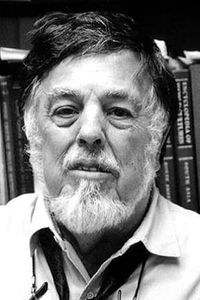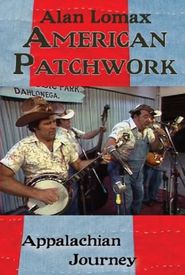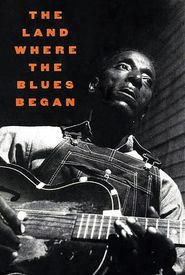Alan Lomax, a remarkable American figure of the 20th century, dedicated his life to the pursuit of folk music, leaving an indelible mark on the world of music, folklore, and cultural heritage.
As a multifaceted individual, Lomax embodied the roles of field collector, meticulously traveling to remote regions and rural areas to document and record traditional music and songs, often in their most authentic and unaltered forms.
He also functioned as a folklorist, delving into the cultural significance and historical context of the music he collected, and shedding light on the rich diversity of traditional music from around the world.
Furthermore, Lomax was an ethnomusicologist, studying the music from a scientific perspective, analyzing its structure, melody, and rhythm, and identifying the various ways in which music reflects and shapes culture.
In addition to his academic pursuits, Lomax served as an archivist, meticulously preserving and cataloging the vast collection of recordings, documents, and artifacts he gathered during his travels, ensuring their preservation for future generations.
As a writer, Lomax penned numerous articles, books, and essays on music, folklore, and cultural heritage, sharing his knowledge and insights with a wider audience and inspiring a new generation of music enthusiasts and scholars.
He was also a scholar, conducting extensive research and analysis on the music he collected, and presenting his findings at conferences, lectures, and symposia, contributing to a deeper understanding of the significance of folk music in human culture.
Moreover, Lomax was a political activist, using his platform to advocate for the preservation and promotion of traditional music and culture, and working to raise awareness about the importance of cultural heritage in shaping our identities and communities.
As an oral historian, Lomax recognized the importance of capturing and preserving the stories and experiences of individuals and communities, and worked to document and share these stories through his writings and recordings.
Finally, Lomax was a filmmaker, using his skills to create documentaries and films that showcased the music and culture he had collected, bringing these stories to life for a wider audience and leaving a lasting legacy in the world of music and film.
Alan Lomax, a renowned figure in the world of music, embarked on a remarkable journey that spanned across the United States and England, leaving an indelible mark on the realms of recording, concert production, and radio broadcasting.
As a trailblazing musicologist and ethnomusicologist, Lomax's tireless efforts yielded a vast and diverse collection of recordings, concerts, and radio shows that not only captivated audiences but also played a profoundly significant role in the resurgence of American and British folk music during the 1940s, 1950s, and early 1960s.
His influential contributions inspired a new wave of musicians and music enthusiasts, forever changing the landscape of the music industry and cementing his legacy as a pioneer in the field.
John A. Lomax's offspring, Alan Lomax, embarked upon a lifelong odyssey of musical exploration, alongside his father, a celebrated folklorist and collector, whose expertise and passion for preserving traditional music and oral histories had already garnered widespread recognition.
This dynamic duo set out on a series of expeditions, traversing the vast expanse of the United States, driven by an insatiable curiosity to uncover and document the rich tapestry of folk songs, stories, and cultural traditions that had been woven into the very fabric of American society.
As Alan Lomax's journey continued, he often found himself collaborating with other esteemed figures, sharing his passion for the preservation of traditional music and the stories that lay behind them. With meticulous attention to detail, he meticulously recorded thousands of songs and interviews, meticulously documenting the Archive of American Folk Song, a testament to his enduring legacy.
As the esteemed director of the Archive of American Folk Song at the prestigious Library of Congress, Lomax embarked on a noble endeavour, dedicating himself to the meticulous preservation and meticulous documentation of the vast and diverse cultural heritage of America.
With unwavering dedication and a keen sense of responsibility, he undertook the arduous task of recording and storing an extensive collection of songs and interviews, carefully inscribing them onto durable aluminum and acetate discs.
Through his tireless efforts, Lomax ensured the preservation of these precious cultural artifacts for the benefit of future generations, thereby safeguarding the rich musical and oral traditions of America against the ravages of time and neglect.
Alan Lomax's extraordinary impact on the world of music, folklore, and cultural studies remains profound and far-reaching, a lasting tribute to his unwavering passion and unrelenting commitment to safeguarding and honoring the rich cultural heritage of America's folk music traditions.
As a pioneering figure in his field, Alan Lomax's tireless efforts to document, preserve, and promote America's folk music legacies continue to inspire and influence generations of musicians, scholars, and music enthusiasts alike, his groundbreaking work serving as a testament to the enduring power and significance of traditional music in American culture.
Throughout his illustrious career, Alan Lomax's remarkable accomplishments have left an indelible mark on the world of music, folklore, and cultural studies, his tireless dedication to the preservation and celebration of America's folk music traditions a shining example of the transformative impact that one individual can have on the world.
As a testament to his enduring legacy, Alan Lomax's work continues to inspire and influence new generations of musicians, scholars, and music enthusiasts, his groundbreaking research and recordings serving as a vital link to the past, a powerful reminder of the importance of preserving and celebrating our cultural heritage for future generations.
Alan Lomax's remarkable legacy continues to inspire and influence music, folklore, and cultural studies to this day, serving as a testament to his tireless dedication to the preservation and celebration of America's folk music traditions.
Alan Lomax, the renowned musicologist, folklorist, and ethnomusicologist, is best known for his extensive field recordings of traditional American music, particularly blues, folk, and country music, as well as his work with the Library of Congress and his development of the concept of "folk process," which posits that traditional music is constantly evolving through a process of oral transmission and cultural exchange.
Born in 1915 in Austin, Texas, Alan Lomax was the son of John Avery Lomax, a prominent folklorist and musicologist in his own right. Alan Lomax's early exposure to music and folklore was largely shaped by his father's work, and he began his own musicological pursuits at a young age, eventually studying music and anthropology at the University of Texas.
In the 1930s, Alan Lomax began working with the Library of Congress, where he collaborated with his father on a series of field recordings of traditional American music. These recordings, which included performances by legendary musicians such as Lead Belly and Woody Guthrie, helped to establish the Lomaxes as leading figures in the field of American folk music.
Throughout the 1940s and 1950s, Alan Lomax continued to work with the Library of Congress, conducting extensive field recordings of traditional music in the southern United States, the Caribbean, and Europe. His work during this period helped to establish the concept of "folk process," which posits that traditional music is constantly evolving through a process of oral transmission and cultural exchange.
In the 1960s, Alan Lomax began to focus more closely on the blues, and his work during this period helped to establish the genre as a major area of study in the field of musicology. His recordings of blues musicians such as Son House and Bukka White, for example, helped to introduce these artists to a wider audience and to establish their importance in the development of American music.
Throughout his career, Alan Lomax was recognized for his groundbreaking work in the field of musicology, and he received numerous awards and honors for his contributions to the field. He is perhaps best known for his work with the Library of Congress, and his extensive field recordings of traditional American music continue to be celebrated and studied around the world.
Today, Alan Lomax's remarkable legacy continues to inspire and influence music, folklore, and cultural studies to this day, serving as a testament to his tireless dedication to the preservation and celebration of America's folk music traditions.
























